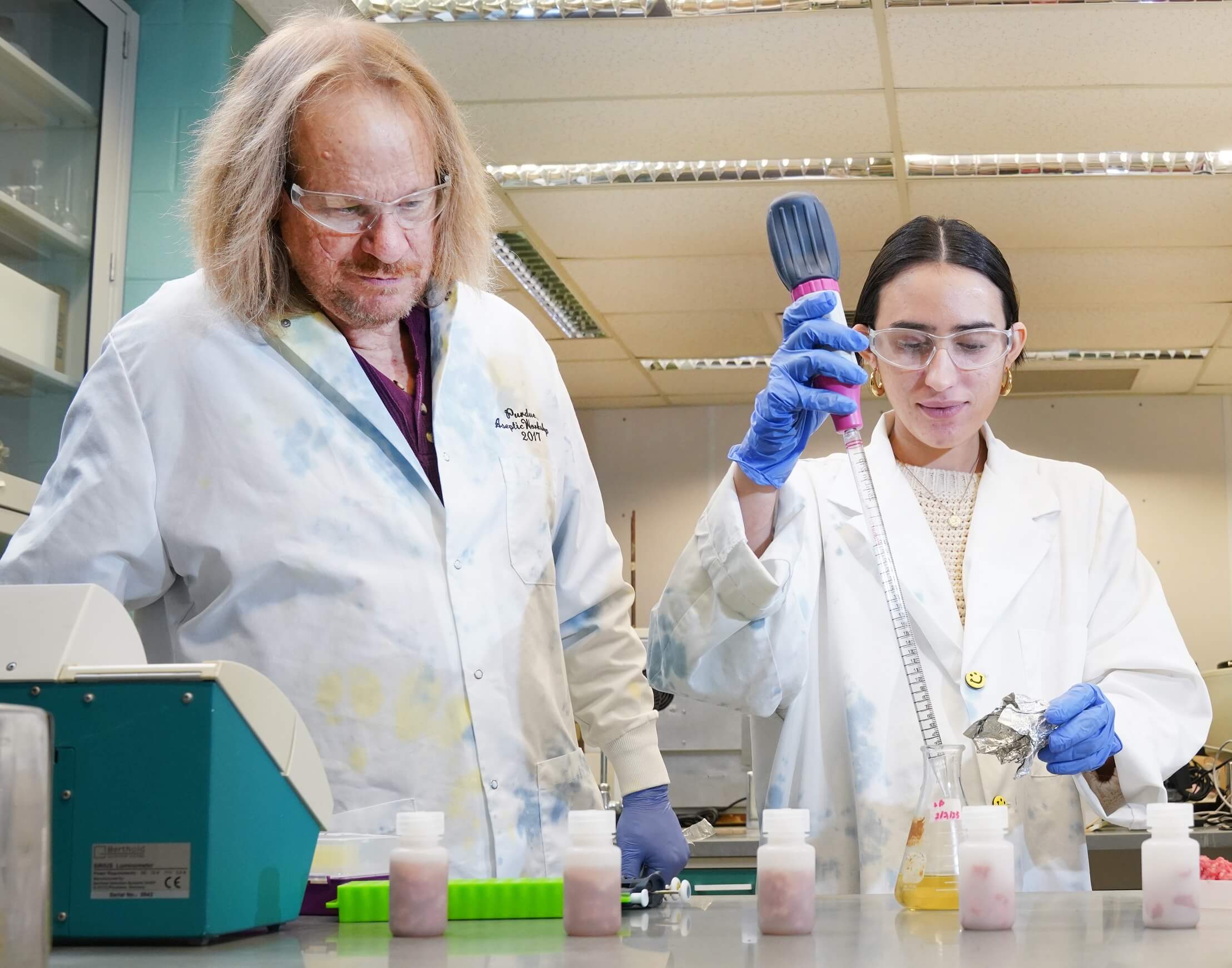Speeding up the detection of E. coli

Bruce Applegate works with Keyshla Narváez, graduate student in food science, on a faster testing method for pathogenic E. coli in beef.
A team led by Bruce Applegate, professor of food science, has developed a new time-saving assay (analysis method) to detect an especially severe strain of E. coli in ground beef. This strain can be life-threatening, so if even one cell of E. coli is detected in a standard sample of ground beef, the entire batch is unfit for consumption.
To detect such a small amount, Applegate and his collaborators developed an assay to enrich any E. coli present in the sample, allowing it to outcompete all other microorganisms in the sample before testing. The system also uses a phage — a virus that infects specific bacteria — to cause the bacteria to produce light. Once the phage is integrated into the E. coli chromosome, it produces an enzyme that causes the infected cells to glow, indicating the presence of E. coli in a meat sample.
The new assay allows the time-consuming enrichment process to occur during the product’s transport to a testing facility. When it arrives at the lab, researchers can add a reagent to detect the presence or absence of light, and thus, the presence or absence of E. coli.
